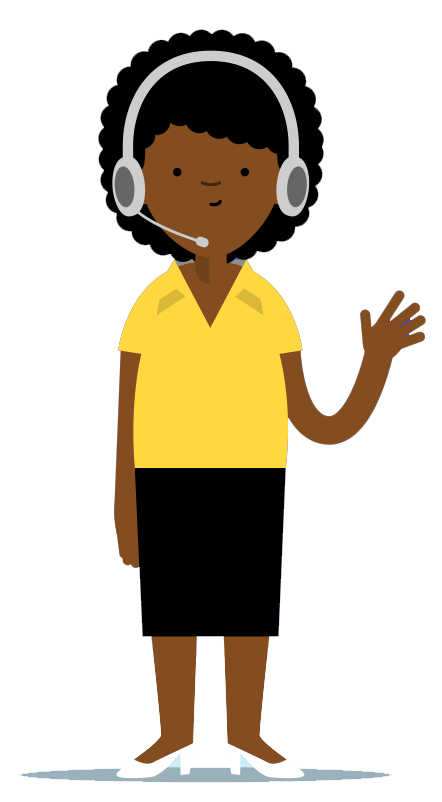If you’re a
call centre operator
it pays to learn what you
can claim
To claim a deduction for work‑related expenses:
• you must have spent the money yourself and weren’t reimbursed
• it must directly relate to earning your income
• you must have a record to prove it.*

You can only claim the work‑related portion of an expense.
You can’t claim a deduction for any part of an expense that does not directly relate to earning your income.
* You can use the myDeductions tool in the ATO app to keep track of your expenses and receipts throughout the year.
Car Expenses
You can’t claim the cost of normal trips between home and work, even if you live a long way from your usual workplace or have to work outside normal business hours – for example, weekend or early morning shifts.
You can claim the cost of using a car you own when you drive:
- directly between separate jobs on the same day – for example, from your job in a call centre to your second job as a waiter
- to and from an alternate workplace for the same employer on the same day – for example, from your workplace to the company training centre.
You can claim parking fees and tolls when you drive your car for work‑related purposes – see car expenses conditions above.
Working from home expenses
If you work from home, you can claim a deduction for expenses you incur that relate to your work. You must:
- use one of the methods set out by us to calculate your deduction
- keep the correct records for the method you use.
You can’t claim:
- coffee, tea, milk and other general household items, even if your employer provides these at work
- items your employer provides – for example, a laptop or a phone
- any items where your employer pays for or reimburses you for the expense.
Clothing and Laundry Expenses
(incl footwear)
With a few exceptions, clothing can’t be deducted as a work‑related expense.
You can’t claim the cost to buy, hire, repair or clean conventional clothing you wear for work, even if your employer requires you to wear it and you only wear these items of clothing at work. ‘Conventional clothing’ is everyday clothing worn by people – for example, business attire worn by office workers or plain black pants.
You can claim the cost to buy, hire, repair or clean clothing if it is:
- a compulsory uniform – clothing you are explicitly required to wear by a workplace agreement or policy, which is strictly and consistently enforced, and is sufficiently distinctive to your organisation. For example, an embroidered shirt with your employer’s logo that is compulsory for you to wear at work
- non‑compulsory uniforms that are registered with AusIndustry (check with your employer if you’re not sure).
You can’t claim a deduction if your employer pays for or reimburses you for these expenses.
Self-education and
Study Expenses
Self-education and Study Expenses
You can claim self‑education and study expenses if your course relates directly to your employment as a call centre operator and it:
- maintains or improves the skills and knowledge you need for your current duties
- results in or is likely to result in an increase income from your current employment – for example, studying for a Certificate III in Customer Engagement.
You need to be able to show how the course relates to your employment and have records for the expenses you claim – such as receipts for course fees, text books, stationery and travel expenses.
You can’t claim a deduction if your study is only related in a general way to your current job or is designed to help you get a new job. For example, a call centre operator can’t claim the cost of a course which would enable you to become a mortgage broker.
You can’t claim a deduction if your employer pays for or reimburses you for these expenses.
Other Expenses
You can claim the work‑related portion of other expenses that relate to your employment, including:
- logbooks, diaries and pens that you use for work and aren’t provided by your employer
- union and professional association fees
- phone and internet costs, with records showing your work‑related use.
You can’t claim:
- parking at your normal place of work, or public transport, taxi or ride‑share expenses from home to work, even if you work split shifts or unusual hours
- compulsory pre‑employment assessments – for example, a hearing assessment you need to pass as a condition of employment
- costs associated with getting a new job, like paying a professional to write your job application
- childcare
- food, drinks or snacks you consume during your normal shift
- grooming expenses, such as hairdressing, skin care products or cosmetics.
You can’t claim a deduction if the cost was met or reimbursed by your employer.
This is a general summary only.
For more information, contact us.

